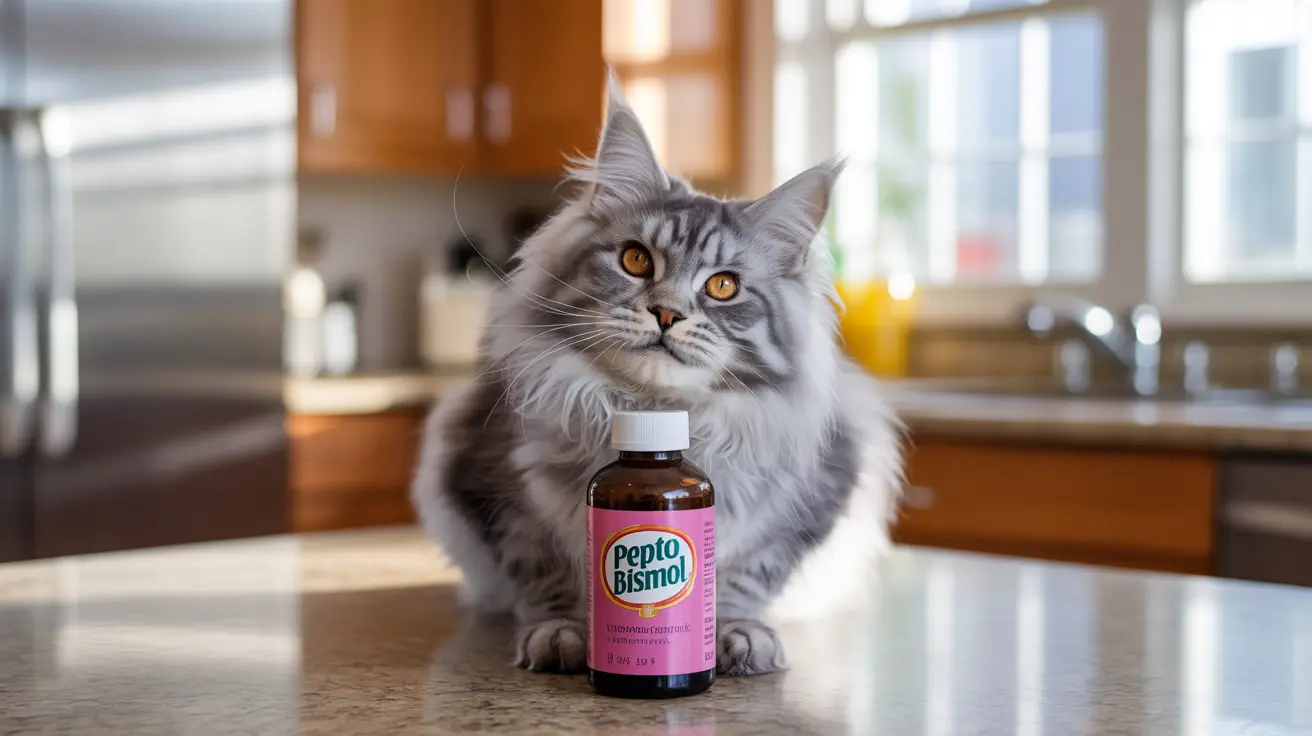If you've ever wondered "can cats have Pepto Bismol?" the answer is a clear and definitive no. While this popular over-the-counter medication helps humans with digestive issues, it can be extremely dangerous and potentially fatal for cats. Understanding why this common medicine is toxic to our feline friends could save your cat's life.
This comprehensive guide will explain the dangers of Pepto Bismol for cats, explore its toxic effects, and provide safe alternatives for treating feline digestive issues. We'll also cover what to do in case of accidental ingestion and why veterinary care is essential for cats with stomach problems.
Why Pepto Bismol Is Toxic to Cats
The main active ingredient in Pepto Bismol, bismuth subsalicylate, belongs to a class of compounds called salicylates, which are related to aspirin. Cats are extremely sensitive to these compounds because their bodies lack the necessary enzymes to process them safely.
Unlike humans and even dogs, cats cannot effectively metabolize salicylates, making even small amounts potentially lethal. This unique biological limitation means there is no safe dosage of Pepto Bismol for cats.
Dangerous Effects of Pepto Bismol on Cats
Immediate Symptoms
- Vomiting and diarrhea
- Lethargy and weakness
- Loss of appetite
- Difficulty breathing
- Black stools
Severe Complications
- Internal bleeding
- Kidney damage
- Liver failure
- Seizures
- Death if left untreated
Emergency Response to Pepto Bismol Ingestion
If your cat has consumed any amount of Pepto Bismol, treat it as a medical emergency. Immediate actions include:
- Contact your veterinarian or emergency animal hospital immediately
- Call the ASPCA Animal Poison Control Center (888-426-4435)
- Do not induce vomiting unless directed by a professional
- Keep the product container for reference
- Monitor your cat's symptoms and behavior
Safe Alternatives for Treating Cat Digestive Issues
Instead of reaching for Pepto Bismol, consider these veterinarian-approved options for managing your cat's digestive problems:
Veterinary Solutions
- Prescription anti-nausea medications
- Cat-specific probiotics
- Special prescription diets
- Injectable medications when needed
Supportive Care
- Temporary food restriction (under vet guidance)
- Small, frequent meals of bland food
- Increased water intake
- Stress reduction
When to See a Veterinarian
Always consult a veterinarian if your cat shows these symptoms:
- Persistent vomiting or diarrhea
- Loss of appetite lasting more than 24 hours
- Lethargy or behavioral changes
- Signs of dehydration
- Blood in stool or vomit
Frequently Asked Questions
Can I give my cat Pepto Bismol for upset stomach or diarrhea?
No, never give your cat Pepto Bismol. It contains salicylates that are toxic to cats and can cause severe illness or death. Always consult your veterinarian for safe treatment options.
What are the symptoms of Pepto Bismol poisoning in cats?
Symptoms include vomiting, diarrhea, lethargy, difficulty breathing, black stools, internal bleeding, and neurological issues. Severe cases can lead to organ failure and death.
Why is Pepto Bismol toxic to cats but sometimes safe for dogs?
Cats lack specific enzymes needed to process salicylates safely, while dogs can metabolize these compounds more effectively. This unique biological difference makes cats extremely sensitive to Pepto Bismol's active ingredients.
What should I do if my cat accidentally ingests Pepto Bismol?
Immediately contact your veterinarian or an emergency animal hospital. Also call the ASPCA Animal Poison Control Center for guidance. Do not wait for symptoms to appear, as prompt treatment is crucial.
What are safe alternatives to Pepto Bismol for treating my cat's digestive issues?
Safe alternatives include veterinary-prescribed medications, probiotics designed for cats, prescription diets, and supportive care measures like temporary fasting and bland diets. Always consult your veterinarian for appropriate treatment options.
Remember, when it comes to your cat's health, it's always better to be safe than sorry. Never give your cat human medications without veterinary approval, and keep all medicines safely stored away from curious paws.






